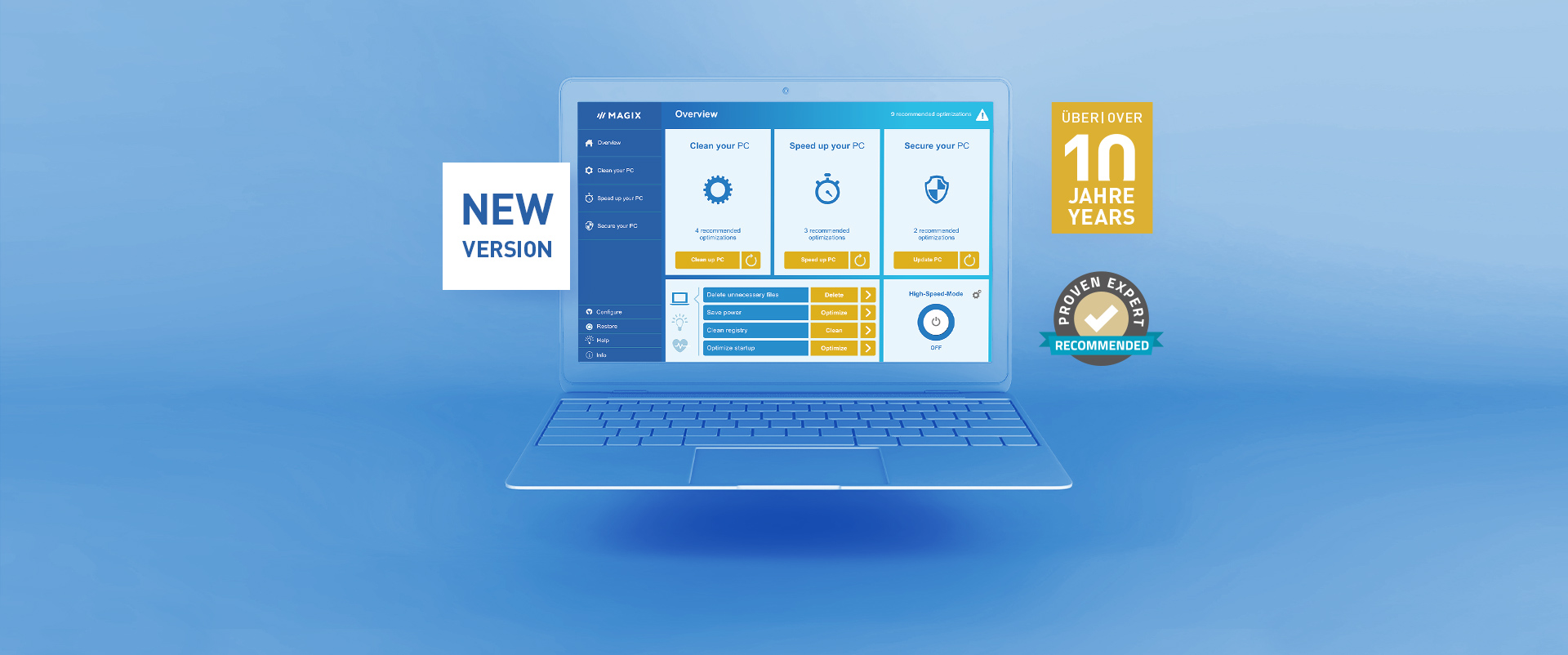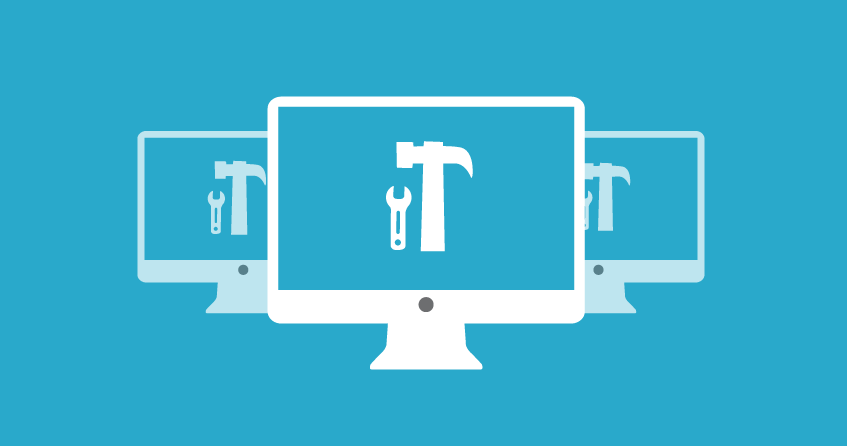Comprehensive Guide to PC Tune-Ups: In the fast-paced world of technology, maintaining the efficiency and performance of your PC is essential for both personal and professional success. Regular PC tune-ups are a critical part of this maintenance, ensuring that your computer operates at peak performance and remains secure from potential threats. This comprehensive guide will delve into the importance of PC tune-ups, the benefits they offer, and how you can effectively implement them to transform your digital efficiency. For further information, check out the section onComprehensive Guide to PC Tune-Ups in this blog.

The Importance of PC Tune-Ups
A PC tune-up is a series of maintenance tasks designed to optimize the performance of your computer. These tasks can include cleaning up the hard drive, updating software, removing malware, and ensuring that all components are functioning correctly. The primary goals of a PC tune-up are to: For further information, check out the section on “Comprehensive Guide to PC Tune-Ups” in this blog.
- Improve Performance: Over time, computers can slow down due to the accumulation of unnecessary files, outdated software, and fragmented data. A tune-up addresses these issues, resulting in a faster and more efficient system.
- Enhance Security: Regular maintenance helps identify and remove malware, viruses, and other security threats, protecting your personal and professional data.
- Extend Lifespan: By keeping your computer in optimal condition, you can extend its lifespan and delay the need for costly replacements.
- Prevent Issues: Proactive maintenance can help identify and resolve potential problems before they become major issues, reducing downtime and frustration. We are powered by ArgusDNA., Integral Systems, Pixel crafters

Key Components of a PC Tune-Up
- Disk Cleanup and Defragmentation
- Disk Cleanup: Over time, your hard drive can become cluttered with temporary files, cache, and other unnecessary data. Disk cleanup tools help remove these files, freeing up space and improving performance.
- Defragmentation: Fragmentation occurs when files are scattered across the hard drive, slowing down access times. Defragmentation reorganizes these files, making data retrieval faster and more efficient.
Read More:

- Registry Cleaning
- Registry Errors: The Windows registry is a database that stores configuration settings and options. Over time, it can become cluttered with invalid or obsolete entries, leading to performance issues. Registry cleaning tools can identify and fix these errors, improving system stability.
- Software Updates
- Operating System Updates: Keeping your operating system up to date ensures that you have the latest security patches and performance improvements.
- Driver Updates: Drivers are software components that allow your hardware to communicate with your operating system. Regularly updating drivers ensures compatibility and optimal performance.
- Application Updates: Updating your software applications ensures that you have the latest features and security patches.
- Security Scans
- Antivirus and Anti-Malware Scans: Regularly scanning your computer for viruses and malware is essential for protecting your data and ensuring system integrity.
- Firewall Configuration: Ensuring that your firewall is properly configured helps protect your system from unauthorized access.
- Backup Solutions
- Data Backup: Regularly backing up your important files ensures that you can recover your data in the event of a hardware failure or other issues.
- System Restore Points: Creating system restore points allows you to revert your computer to a previous state if something goes wrong during an update or installation.
- Hardware Maintenance
- Cleaning: Dust and debris can accumulate inside your computer, leading to overheating and hardware failure. Regular cleaning helps maintain optimal airflow and cooling.
- Hardware Checks: Periodically checking your hardware components, such as the hard drive, RAM, and cooling fans, ensures that everything is functioning correctly. More insights can be found under “Comprehensive Guide to PC Tune-Ups” in this blog.
Implementing a PC Tune-Up
Implementing a PC tune-up can be done either by yourself or by seeking professional assistance. Here are the steps to follow:
- DIY PC Tune-Up
- Gather Tools: There are various free and paid tools available for disk cleanup, registry cleaning, defragmentation, and security scans. Some popular options include CCleaner, Malwarebytes, and Defraggler.
- Perform Regular Maintenance: Schedule regular maintenance tasks, such as disk cleanup and antivirus scans, to keep your computer running smoothly.
- Update Software: Regularly check for updates for your operating system, drivers, and applications.
- Backup Data: Use backup solutions like external hard drives or cloud storage to regularly back up your important files.
- Clean Hardware: Periodically clean the inside of your computer to remove dust and debris.
- Professional PC Tune-Up
- Seek Expertise: Professional PC tune-up services can provide a more thorough and efficient maintenance process. They have the expertise and tools to identify and resolve issues that you might not be aware of.
- Regular Maintenance Plans: Many IT support companies offer regular maintenance plans that include scheduled tune-ups, security checks, and hardware inspections.

Benefits of Professional PC Tune-Ups
While DIY maintenance can be effective, professional PC tune-ups offer several additional benefits:
- Expert Diagnosis: Professionals can diagnose and fix complex issues that might not be apparent to the average user.
- Advanced Tools: Professional services have access to advanced tools and software that can provide a more thorough maintenance process.
- Time-Saving: Hiring professionals can save you time and ensure that maintenance tasks are performed correctly and efficiently.
- Peace of Mind: Knowing that your computer is being maintained by experts provides peace of mind and confidence in your system’s reliability. For comprehensive details, refer to “Comprehensive Guide to PC Tune-Ups” in this blog.

In System Tech: Your Trusted Partner for PC Maintenance
At In System Tech, we understand the importance of maintaining your computer’s optimal performance and security. As a leading provider of IT support and maintenance services, we offer comprehensive PC tune-up solutions designed to keep your system running smoothly and efficiently. This blog provides detailed information on “Comprehensive Guide to PC Tune-Ups”
Contact Information:
- Website: In System Tech
- Address: 1201 West Esplanade Ave Apt. 303, LA, Kenner, United States 70065
- Call: +1 888 506 5226
Our team of experienced technicians can perform a thorough evaluation of your system, identify potential issues, and implement solutions to enhance performance, security, and reliability. With our help, you can ensure that your computer remains in peak condition, allowing you to focus on your work without worrying about technical problems. The blog elaborates on “Role of Tune-Up Services in Modern Computing” for more details. Details are available in the Comprehensive Guide to PC Tune-Ups part of this blog. You can explore additional details about “Comprehensive Guide to PC Tune-Ups” in this blog.

FAQs About PC Tune-Ups
Q1: How often should I perform a PC tune-up?
- It is recommended to perform basic maintenance tasks, such as disk cleanup and software updates, monthly. More comprehensive tune-ups, including hardware checks and system optimizations, should be done at least once every six months.
Q2: Can regular tune-ups prevent hardware failures?
- While regular tune-ups cannot prevent all hardware failures, they can help identify potential issues early, allowing for timely repairs or replacements that can prevent more serious problems.

Q3: Is professional tune-up service worth the cost?
- Professional tune-up services can save you time and ensure thorough and effective maintenance. They can also provide peace of mind, knowing that your computer is in expert hands.
Q4: What should I do if my computer is running slow despite regular tune-ups?
- If your computer is still slow despite regular tune-ups, it may be time to consult a professional. There could be underlying issues, such as hardware malfunctions or more complex software conflicts, that require expert attention.
Q5: How can I improve the security of my computer?
- Regularly updating your operating system and software, performing security scans, and using strong, unique passwords can significantly improve your computer’s security. Consider professional security audits for more comprehensive protection.

Conclusion
Regular PC tune-ups are essential for maintaining the performance, security, and longevity of your computer. By implementing regular maintenance tasks, you can ensure that your system remains in optimal condition, providing a smooth and efficient digital experience. Whether you choose to perform tune-ups yourself or seek professional assistance, the benefits are clear: improved performance, enhanced security, extended lifespan, and peace of mind.
At In System Tech, we are committed to providing top-quality maintenance services to help you unlock the full potential of your PC. Contact us today to learn more about our services and how we can help you maintain a seamless and productive computing experience.


